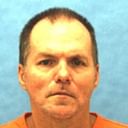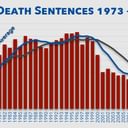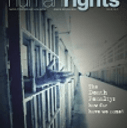By CHARLES LANE
Washington Post Staff Writer
The Washington Post
The Supreme Court announced yesterday that it will decide whether states may permit judges alone, rather than juries, to sentence convicted murderers to death, in a case that could rewrite capital punishment law in almost a quarter of the 38 states that have the death penalty.
Some 795 people are on death row in the nine states where judges determine whether a particular offense included enough aggravating factors, such as extreme brutality, to warrant the death penalty.
Opponents of these states’ laws say they violate defendants’ constitutional rights to be tried by a jury.
The ultimate ruling in the case, Ring v. Arizona, No. 01 – 488, could have a “potentially large effect on executions,” said Richard Dieter of the Death Penalty Information Center. “The court could reverse a lot of sentences and then states would have to decide to retry them at new sentencing hearings, or not.”
As a matter of legal strategy, Dieter said, defense attorneys would generally prefer to face a jury of 12, any one of whom can block a death sentence, instead of a single judge or a panel of judges.
In 1996, an Arizona jury convicted Timothy Stuart Ring of murdering an armored car driver in the course of a robbery. As provided for under Arizona law, a judge considered the evidence and decided that Ring’s crime was serious enough to merit the death penalty — and Ring was sent to death row.
Ring’s attorneys later challenged the judge’s decision in the Arizona Supreme Court, claiming in part that the sentencing proceeding was unconstitutional under the U.S. Supreme Court’s landmark decision in the 2000 case of Apprendi v. New Jersey.
The majority opinion in Apprendi held that, at a sentencing proceeding, any fact related to an alleged crime that would increase a defendant’s prison term beyond the maximum prescribed by law must be proved to a jury beyond a reasonable doubt.
The majority opinion — written by Justice John Paul Stevens and joined by Justices Antonin Scalia, David H. Souter, Clarence Thomas and Ruth Bader Ginsburg professed not to overturn death penalty statutes such as Arizona’s, however.
But a dissenting opinion by Justice Sandra Day O’Connor and joined by Chief Justice William H. Rehnquist and Justices Anthony M. Kennedy and Stephen G. Breyer said that the majority’s opinion was logically inconsistent with such laws, which the court had upheld as recently as 1990.
Now, apparently, the court has decided to settle that lingering issue.
A ruling in the case is expected by July.
Separately, the court also agreed yesterday to decide a case that could have major financial implications for both business owners and employees in the nation’s restaurant industry, which has taken an economic hit from the recession and the Sept. 11 terrorist attacks.
At issue are Internal Revenue Service rules under which the IRS collects millions of dollars in Social Security taxes from employers each year to match taxes workers such as waiters and busboys themselves pay on the tips from their customers.
In 1991 and 1992, the owners of the Fior D’Italia restaurant in San Francisco paid the IRS based on the amount of tips its workers reported receiving.
However, the IRS, reviewing credit card receipts, estimated that the tip total was far higher and that Fior D’Italia would have to pay more than $23,000 in additional taxes.
Fior D’Italia took the IRS to court, and a three-judge panel of the San Francisco-based U.S. Court of Appeals for the 9th Circuit decided 2 to 1 last year that the government could not use estimates but would instead have to audit individual employees’ tip earnings to determine how much income, if any, the workers had failed to report.
The Bush administration appealed, noting that the 9th Circuit’s ruling was at odds with those in other circuits. The case is U.S. v. Fior D’Italia, No. 01 – 463. A ruling is expected by July.



